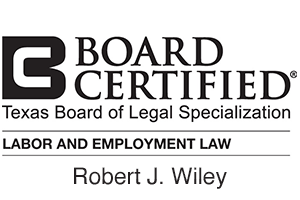in Austin, Texas
OSHA
Workplace Safety Attorneys for Employees in Austin and Surrounding Cities
Under both federal and state laws, employers have a duty to protect employees from dangerous workplaces and conditions in Texas. The federal Occupational Safety and Health Act includes both general and specific standards for employers in various industries that provide a bare minimum of health and safety on the job. Texas also has its own Occupational Safety and Health Act to protect employees from hazards on the job. In some cases, workers suffer from retaliation for reporting OSHA violations. However, under the law, you have the right to notify your employer or the Occupational Safety and Health Administration (OSHA) about a hazardous workplace. At Austin Employment Lawyers, P.C., our Austin workplace safety lawyers may be able to help if you were subjected to retaliation based on your report of an OSHA violation at your job.
Reporting a Violation to OSHA
The Occupational Safety and Health Act (OSH Act) has numerous specific standards that employers in certain industries (general industry, maritime, agriculture, and construction) must meet. Additionally, it has a general duty clause that covers any workplace condition that presents a hazard that is recognized by an employer or its industry, if the hazard is likely to cause injuries or death, and an employer could eliminate or minimize the danger. The law is enforced by the Occupational Safety and Health Administration.
Under the Occupational Safety and Health Act, you have the right to let your employer or OSHA know about a danger or hazard in the workplace, and you have the right to ask OSHA to conduct an on-site inspection about it. OSHA is a neutral agency that investigates and prosecutes safety violations and retaliation, and it is helpful to have an attorney to advocate for your position during the administrative process.
In some cases, an employer decides to cut corners by failing to follow the federal or state laws that have been put in place to protect workers. If you are scared of a hazard in your workplace, you should report it to OSHA. OSHA prohibits your employer from retaliating against you for reporting a safety violation to your employer or to OSHA.
You may have been subjected to retaliation under the OSH Act if your protected activity was the reason why your employer took an unfavorable employment action against you. Unfavorable actions can include termination, blacklisting, demoting, denying you overtime or promotion, discipline, denying you benefits, intimidation, making threats, reassignment to a less desirable position, failing to rehire, reducing pay, or suspending you.
Depending on which law you believe your employer has violated, you may have an extremely short period of time in which to file a complaint. Under some statutes enforced by OSHA, a complainant has only 30 days from the time of the retaliatory act within which to file an OSHA complaint,. It is possible to file a complaint with OSHA by visiting or calling the local OSHA office, but you can also send a written complaint or do it online.
OSHA will review your complaint to decide whether it is valid. In order to find retaliation, the OSHA investigation of the complaint must show that you engaged in a protected activity, the employer knew about it or suspected it, the employer took an adverse action, and the protected activity in which you engaged was a motivating or contributing factor for the adverse action taken against you.
If the evidence supports what your complaint, OSHA can issue an order to the employer that may require reinstatement, payment of back pay, and restoration of benefits. The employer is supposed to comply with a reinstatement order right away. The Secretary of Labor can file suit in federal district court to get relief. Unfortunately, outside of OSHA, there is generally no private cause of action for workers under the OSH Act.
You do have a limited right under the OSH Act to refuse to do a job when the conditions are dangerous. You can refuse to do a job if you believe that you face serious injury or death, and the situation is such that any reasonable person would think the same, you tried to get the employer to correct the problem but were unable to get it to correct the problem, and the situation is so urgent that you do not have time to eliminate the hazard by calling or otherwise notifying OSHA.
Consult a Knowledgeable Austin Attorney Following a Workplace Safety Violation
If you are concerned about an OSHA violation in Texas, you should consult a whistleblower attorney. You may be able to stop your employer from retaliating against you. The Austin lawyers at Austin Employment Lawyers, P.C. represent people in Austin, Georgetown, Round Rock, Cedar Park, Pflugerville, Leander, Del Valle, Kyle, San Marcos, San Antonio, New Braunfels, and Fredericksburg, among other cities. Call us at (512) 271-5527 or use our online form to ask for an appointment.







